XMAS PRESENTS FROM CHRISTMAS PAST
XMAS PRESENTS FROM CHRISTMAS PAST
by Michael Higgins
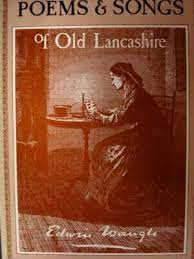
The Edwin Waugh Dialect Society, based in Rochdale, Greater Manchester Christmas or Kesmas ‘do’ went well with recitals, songs, tunes and mince pies etc. Alyson Brailsford and Maureen Harrison were there and, of the rest, regular readers will know the name of Don Parry, who also performed,

Perhaps Alyson (as secretary) invited him at the last Pegasus session. But perhaps not for when she invited him to perform and asked if his proffered poem was in Lancashire Dialect he looked rather surprised. He said he only knew Australian dialect but proceeded to read one of his poems from a book entitled Pills to Peace (An E book primarily written by Midnight McBride (above. right))
As Alyson had chosen the order of speakers/singers both Don and I only got chance to recite once. Don was rather bemused as he had brought his guitar and a sheaf of lyrics and music.
Absent, though, were Sid Calderbank (at a gig) and Paul Salveson who was supposed to read one of his own choices. Alyson had asked me to read Margaret Lahee’s Kitty And Robin so I got Susan to read Kitty’s part in Scouse (she is a Liverpool lass). I am not sure what Miss Lahee would have made of her Rochdale dialogue being interfered with but after all it was Christmas.
Alas Robin Parker was not there but we still made a party of 25. And there were some books for sale donated by a dialect collector. I bought a couple of Ammon Wrigley’s books published in the 1830s which mix Saddleworth and Oldham heritage and folklore with his own standard and dialect verse.

Samuel laycock “Th’ parson’s heawse bein’, close to th’ schoo’, we went theer th’ fust, an’ started a- singin’ ‘Christians, Awake!’ When we geet to th’ third loine, where it says ‘Rise to adore,’ som’b’dy sheawted eawt, ‘Rise, an’ let these chaps sup.’ Well, when we yeard that, one o’th’
lads ‘at wur singin’ ceawnter brasted eawt a-laughin’, an set some
o’t’ others agate, an we broke deawn afore we geet to th’end o’th’
fust verse. Aw wur playin’ th’ double bass at th’ toime, an’ aw felt
so vexed at Aw up wi’ th’ fiddlesticks, an’ wur beawn to fot one on
‘em a crack o’er th’ yead, but Aw missed mi aim an’ hit one o’th’
women singers a welt o’er her bonnet, an’ made it as flat as a
poncake. Yo’ may guess what a row ther’d be then….”
© Samuel Laycock (1826-1893)
¨May your singing be melodious and your fiddlesticks well greased¨
Laycock´s story is well known to EWDS members. He was a dialect poet who recorded in verse the vernacular of the Lancashire cotton workers. He was born on 17 January 1826 at Intake Head, Pule Hill, Marsden, West Yorkshire, the son of John Laycock, a hand-loom weaver.

THE BUGLE No 60
December 2021
Many Sidetracks And Detours readers living in the North West of the UK might be already aware of some work that Geoffrey Oliver, Chairman of Royton Local History Society referred to in the organisation´s most recent newsletter, and will have seen the scaffolding that has been erected around the Town Hall in Royton. Obviously, says Geoffrey, the work has begun to refurbish the outside and work is progressing on the clock repair.
Eve Edwards, one of the ladies who help keep Royton running smoothly, is very kindly keeping him to date as the work progresses and is sending photographs of what’s being done.

The local library (left) has been closed for a few weeks as well. This was to repair the internal wall that joins onto the town hall. It had become very damp, and the plaster was falling off.
With the Society next year celebrating its 20th anniversary members are being straw-polled to gauge how best that might be commemorated.
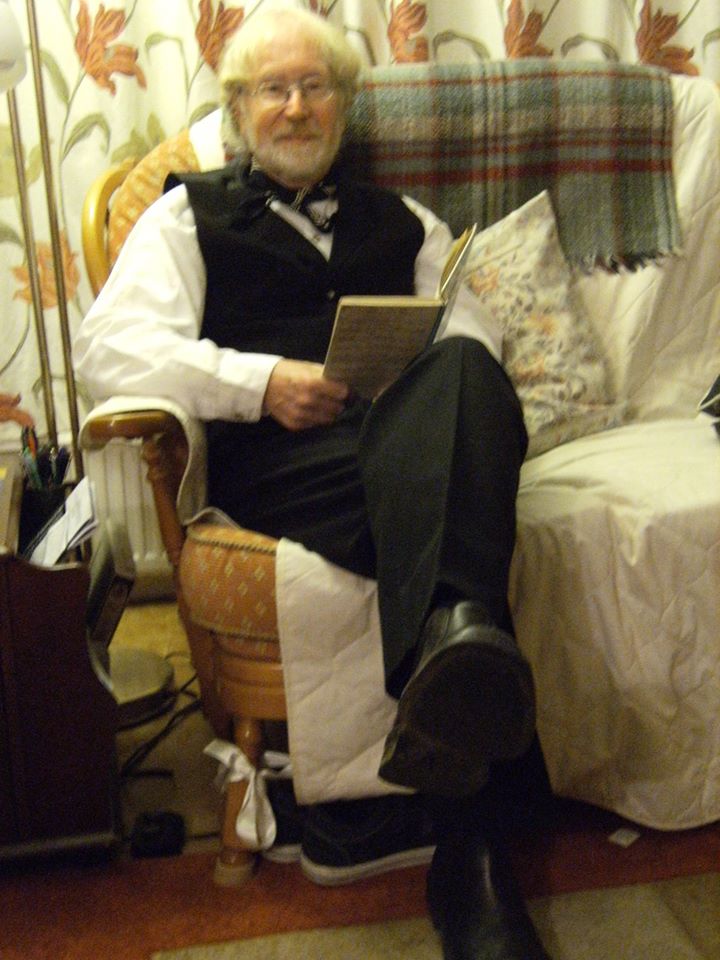
Meanwhile, Michael Higgins, (right) a regular contributor to The Bugle remembers four ghosts of a Christmas Past, in an article entitled
WAR, WOE, COAL AND COTTON
Christmas 1871-1872
The months between the New Year of 1871 and that of 1872 were lived against the backdrop of the Franco- Prussian War (July 1870 – to the Armistice of the following January of 1871) and the building of Royton’s first limited liability cotton spinning mill also of July 1871. The eventual peace treaty, signed in May of 1871, made the new German Empire the supreme military power in Europe and saddled France with the loss of the provinces of Elsass- Lothringen (Alsace- Lorraine), loss of face and a huge war indemnity. The building of Royton Spinning Mill in Highbarn Street, begun in July of 1871, and grandly opened by a brass band and a parade, signalled a long but chequered boom in the local textile trade, war or no war.
But life went on at its normal pace despite individual trials and tribulations. These were often laid bare in Royton Magistrates’ Court where fines or jail for drunkenness and brawling were endemic. In December of 1871 Royton Local Board was asked to debate the merits of adopting a new public houses act to standardised closing times. Voices were raised in the chamber defending the local landlords who generally closed doors at the proper hour, but one complainant declared recently a group of rowdies had broken into a pub near him and started playing the piano at two o’ clock in the morning. The matter lay pending. On 23rd December the Oldham Standard reported one incident under the heading An Unpleasant Reminiscence of his Native Place, James Taylor of Blue Pitts was apprehended ‘drunk and making a great noise’ in Sandy Lane on the night of the 7th. His defence was that after a few weeks without work he had met some friends in his native Royton and got to drinking. He was fined 2 shillings and sixpence or seven days in prison but was in the meantime accompanied two miles on the road home by two officers who saw him safely on his way. He was lucky; Edward Haslam of Thornham, celebrating the new year of 1872, was threatened with the stocks. ‘Are there any stocks in Royton?’, asked one magistrate. For some reason he was told no there weren’t and it was either fine or gaol.
Undoubtedly drink had something to do with a magistrates’ case of 9th December which involved a gang of 20 youths at Royton Tollbar near Dogford Road. They called the keeper, William Barr out of his house by shouting ‘gate, gate, let these sheep through!’ One was heard to cry ‘someone will get summonsed for calling out “ stop those sheep” ‘. Constable Johnson was on the scene however and apprehended Abraham Longbottom immediately. The magistrates however let him off with a warning. And in the same week a nervous Anne Taylor made a complaint against John Taylor of the Oldham hunt for discharging a firearm at her house at Grimbies Farm on Oldham Edge, breaking window panes and ‘damaging a shed’. After an interminable time taken for the story to be ‘dragged out of her’ she was asked ‘so is that when you asked for a summons?’ After some hesitation she replied ‘Yes but Aw’l come no more here’. After the laughter of the court subsided she was awarded sixpence damages plus costs but was so nervous as she was told she could go that she exclaimed ‘Aw’l come no more here’. But at least she won her case. A poor resident of Edge Lane failed in his dispute with a neighbour over the demolition of a wall he claimed ownership of. The court deemed he seemed to have some ‘peculiar deeds’ and dismissed the case. The complainant said he would come back ‘ with more pappers’.
Getting too much into the festive spirit at Christmas cannot always be a bad thing and certainly the annual festivities went on as usual though a little less well reported as in former years. The various churches and chapels held their annual tea parties as did the schools and various trade and friendly societies. But details here are few and far between. The Rechabites for instance had their usual annual New Year’s party in January of 1871 with the usual recitations and rendering of their ‘favourite melodies’, while the Congregational schools held theirs in the Temperance Seminary (now Istanblue) composed of 200 ‘teachers, scholars, and friends’ entertained by the ‘excellent singing of the chapel choir of Handel’s Hallelujah Chorus’. The Standard re reported the latter was attempted ‘and creditably sung through’. The newspaper believed ‘it is the first time it had been successfully introduced in Royton’. A Christmas Tree yielded them £12 in aid for the funds for building a new school. The report does not say how.
St Paul’s National Sunday Schools held their customary New Year’s Christmas party entertained by the singing of Old favourites ‘Blue Bells of Scotland, and Auld Lang Syne sung by a boy ‘who was formerly an inmate of the Oldham Union Workhouse.’ But coverage of Christmas and New Year parties in both 1871 and 1872 is slim. One stands out in January of 1871 held at the Hare and Hounds in by No. 2 workshop of Robert Shepherd’s fustian cutting mille in Shepherd Street. Thirty Six workers and ‘sweethearts’ sat down to a ‘substantial dinner consisting of roast beef, plum pudding, mutton, tongue etc.’. Joseph Cooper presided over the festivities spent in a ‘thoroughly seasonable English fashion’. The report adds: ‘ with the assistance of Mr Samuel Shirt, there was some good singing and dancing’. But perhaps the grandest party was held by the local Liberals at the Literary Institute. The Conservative party- supporting Standard noted in December of 1871 that ‘four sevenths of ‘the gentle sex’ were present and that ‘the room was unpleasantly overheated with the dread of a flood of poor oratory.’ The Standard praised the chairman, Thomas Seville of Elm House, who set a good example by being brief and pertinent’ despite the ‘impatience of others to dance’.
Some as always suffered great sadness while jollifications were planned around them. In early January 1871 an inquest had been held in the Turks Head over the death of Mary Hannah Whittle, aged eight, daughter of George Whittle, Fustian Cutter, of Gravelhole. She had been playing near a hot cinder heap by the coal pit head at Hanging Chadder. The engineer had dumped the cinders by the footpath as they came out of the furnace and her clothing had caught fire as she played. The Jury recommended that the Oldham, Rochdale and Middleton Coal Company fence the hot cinder area off. Now, as the Christmas of 1871 approached, Henry Howard, 83 of Heyside had been found hanged in a fit of depression by his sons returning from work. He had mourned his deceased wife for four years and had never got over her passing. His inquest at the Hare and Hounds heard that he had formerly worked at Platt Brothers in Oldham but had not worked for a year. He had been housekeeper to his sons.
And, ignorant of Christmas or human happiness, a foot and mouth outbreak continued to worry Royton farmers with 40 cattle and five swine infected at various farms in December of 1871. And death also pricked the mind that same December as the Local Board debated three choices for a new burial ground to replace St Paul’s churchyard. The three sites under discussion were at Parapet Hill and High Barn overlooking Royton Park, Land off Butcher Lane and Hough Bottom farm. The agent for Sir Joseph Radcliffe, lord of the manor informed the council that as the estate was entailed they ‘must pay a proper price’. Elsewhere Local Board Business descended into farce when the ‘Dark Passage of High Street’ was debated. Someone pointed out that a motion to remove a lamp post from outside the Shoulder of Mutton Inn and replace it with a bracket lamp attached to Mr Whittaker’s Hall Street Mill diagonally opposite across Middleton Road had not been seconded properly at the last meeting. Much of the meeting was concerned with the pros and cons of procedure, despite the sad news being conveyed that the lamp-post had already been taken down. On a cheerier note a few weeks later in January of 1872 they debated the plans of a new mill proposed by Thomas Seville.
But for some 1871 had turned out doubly alright after all, despite magistrates and the Local Board. In early January of that year while New Year’s celebrations were all but over a carriage at full pelt drew up at Royton Magistrate’s court. A policeman hastened to steady the horses to find a bride and groom and wedding party crammed within. They had arrived twenty minutes late for their wedding in Oldham and the registrar, Kay Clegg, who was also clerk of petty sessions in Royton, had already left for Royton. Clegg came out to see them and sent them back to Oldham with a promise he would wed them later. The happy couple were indeed married later with a bridesmaid declaring: ‘Better late than never.’ I hope the new couple enjoyed their first Christmas.
Royton Local History Society on the Internet at www.rlhs.co.uk
A member of The British Association for Local History
A member of the Friends of Real Lancashire
wishing everyone
Good Yule, Good Kesmas, and a harmonious New Year.
coming soon logo

Michael Higgins and readers might be interested to know that there is a Christmas Present under the tree here in the Sidetracks And Detours office that tells of Christmas Past, and various other sundries, of Lancashire Pastimes that will certainly provide us with a fund of stories for the next and future years. Written and collated by Dennis Ball and illustrated by Mark Gilligan, the book was first published in 1987 and the author has also written The Story Of Failsworth and Oldham Pastimes that no doubt include tales of various Oldham Tinkers.
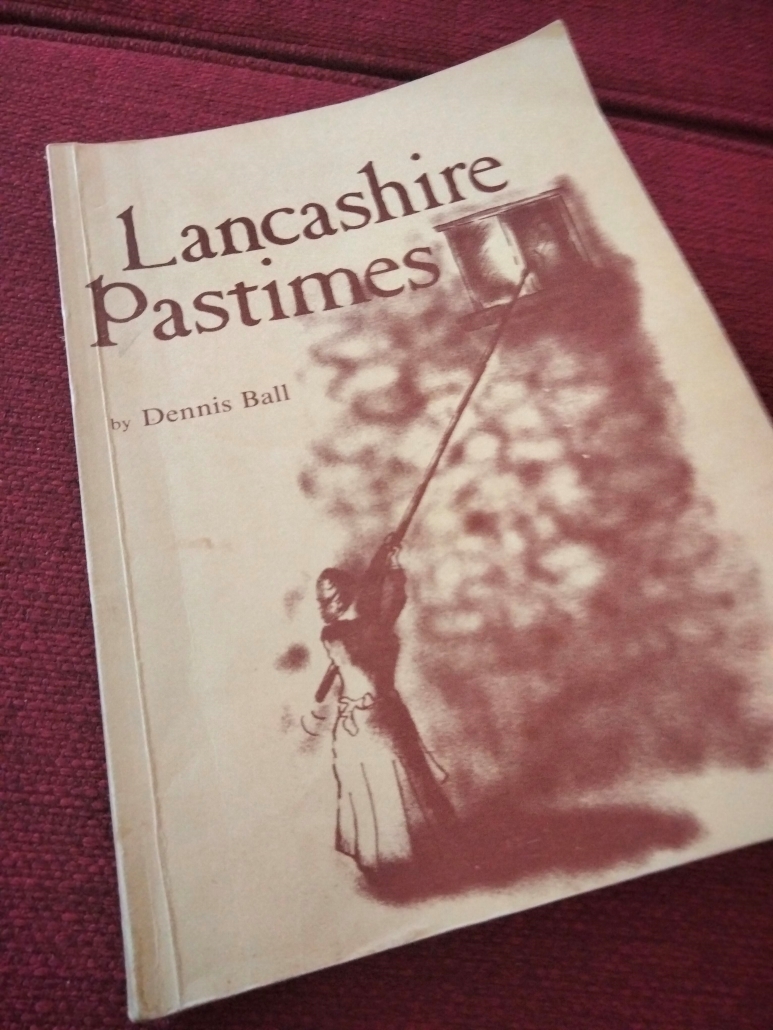
Lancashire Pastimes (left) was sent to us by Rita Martin, a reader from Bury, which is the home of some of the stories contained. Her sister, Sandra Kinghorn (who has featured previously on these pages, actually lives here on Lanzarote, just across the road from us. Rita, Sandra, my wife Dee and I have some familiarity and fading memories of some of the myths and legends the author has gathered here. When we come to explore them in some of our posts, in 2022- Michael Higgins will no doubt be able to lend us his historical knowledge, too.
Using Rita´s gift as a base we will deliver articles on Rush-bearing traditions, and look at quaint Lancashire rhymes and sayings. We will say ´good morning´ to the knocker up man, who was perhaps the lamplighter of the night before, as we set off before the crack of dawn to take sidetracks & detours up Pendle Hill, to see the witches or maybe go in search of the Boggart of Boggart Hole Clough ! Somewhere round Bacup way we will see the Nutters, black-faced still despite suggestions from some uninformed circles that that they would be m ore politically correct to turn a whiter shade of pale. We will also hear of sightings of The Baum Rabbit, often seen when we who were poets Barred From The Baum stumbled out of the pub of that name after a Sunday evening read-around. We will therefore look, too, at another pub utilised by poets and prophets and bar-room philosophers and at the history and mystery of its network of underground tunnels and ´escape routes´ that still weave to and from the Ring O´Bells public house in Middleton. These played a major part in the events of the social catastrophe of Peterloo,

Some of those tunnels reached as far as Manchester, some six or seven miles away, so we will also look at the history of Manchester Cathedral, home of faith and folk music and a meeting place for a creative writing group. St. Chad´s church in Rochdale (left) has a few stories we could explore, too, and as you will see from Graham Marshall´s piece below, the music there still rings true.
There are, of course, many songs, stories and poems, made famous by folkies such as The Houghton Weavers and The Fivepenny Piece. still being revised and recounted by the likes of The Oldham Tinkers, about the Lancashire Cotton Industry too and we will even look at how Lancashire moved from clogs to bingo in three generations.
As a facilitator of The Edwin Waugh Dialect Society, Michael and his colleagues there, might be pleased to know we shall also look next year at dialects throughout the UK and focus not only on Rochdale dialect but also on the spoken ways of Bury and Bolton, Tadcaster and Dewsbury in Yorkshire, Birmingham and Cornwall the highlands and islands of Scotland; all places that were important to Dee and I when we lived in the UK and which shaped the way we speak today.
In my very first sentence introducing the piece above I carelessly place Rochdale in Greater Manchester, (I should have known better, after living there for more than fifty years) when in fact Rochdale is in,…..well, I ´´ll just copy in the e-mail from the ´Wicken Rapid Response Unit to clarify any confusion.

Rochdale and the Edwin Waugh Dialect Society are based in Lancashire and NOT that strange artificial bureaucracy you mention known only to Lord Redcliff Maud. We are Lancashire folk. Indeed our postal address is still Lancashire (the so called ‘Greater Manchester’ being rejected by the post office as soon as the Redcliffe Maud world was announced). And of course Susan was using Lancashire dialect in speaking Scouse as Liverpool, Warrington, Todmorden. Barrow in Furness and Hawkshead etc are all in the Shire Palatine and red rose to the core. As you can see Royton Historical Society is a member of the Friends of Real Lancashire, as are we all.
It was nice to read the piece (below) by Graham Marshall – the Marshall has played at many churches including my old local church, now sadly closed.
Meanwhile, though, I often feel that music is just as important a part of human communication as is the spoken word, and the reports from Graham Marshall of the Rochdale Music Society, might seem to offer support to that theory, as readers will gather from the piece below.

AN ENTIRE UNIVERSE in eighty eight keys.
LUCA OKROS
piano recital, Rochdale Music Society
review by Graham Marshall.
Our occasional music correspondent, Graham Marshall, (above, right) from the same neck of the UK woods as Michael, shared with us a review of the final concert of the year on his RMS calendar.
´Here’s my Review of the recent Rochdale Music Society concert. If you weren’t there, you missed something special!
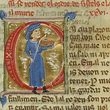
Members of the Rochdale Music Society had been eagerly looking forward to the return of Georgian pianist Luka Okros, who had dazzled them with his spectacular technique and musicianship two years ago. They were not to be disappointed in their expectation of another intensely satisfying evening of performances bringing delight to their experience of live classical music making.
There has been a church on the hill overlooking Rochdale Town Centre for well over 1,000 years. Part of the present church tower have been dated back to Saxon times. The town stocks, dated 1688, are in the grounds and the grave of Lancashire dialect poet Tim Bobbin (John Collier of Milnrow) is in the churchyard. The church has notable stained glass, the best known being the Burne-Jones window in the tower, depicting Faith, Hope and Charity, with glass by William Morris.
In spite of the bitterly cold weather outside, St. Chad’s provided a venue for heart-warming accounts by a masterly interpreter of music by both the late Baroque composer, Domenico Scarlatti, and the early Romantic, Frédéric Chopin, as well as offering glittering insights into the poetic soul of the performer himself in the form of three Impromptus of his own.

The Sonatas of Scarlatti, which were played before the concert interval, consisted of a selection of four of the many pieces for keyboard written over the years by a man whose music belongs to a period in European musical development when composers were seeking to simplify things and bring a lighter and more immediately appealing touch to musical expression. This ‘galant’ style did just that, but without reducing the value of musical currency; as these examples of his artistry revealed in this finely attuned performance by Luka Okros revealed.
Most of the concert consisted of music by Chopin, regarded as perhaps the finest of composers for the piano of the nineteenth century ‘Romantic’ period, romantic meaning ‘adventurous’ rather than ‘starry-eyed’ or ‘sentimental’. From the early 1820s through to the early 1900s European composer led the way in a new movement towards even greater immediacy of expression and appeal than had the likes of Mozart and Beethoven in the previous generation.
The four Nocturnes, with which the concert began, offered a range of melodic inspiration projected against backgrounds of finely woven harmonic textures. Like songs without words they spoke to the audience of some of those significant and satisfying moments in life we find otherwise impossible to communicate.
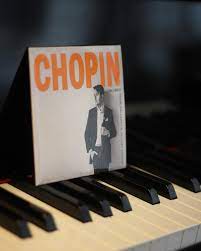
The two Ballades, with which the concert ended, are the first and last in a series of four works of that title written by Chopin over the period 1835-42. They might be said to express his deepest thoughts about life in a world that calls for immense courage and determination if we are to measure up to its challenges and find any satisfaction in welcoming its opportunities. Deceptively plaintive, simple-sounding and even tender melodies are to be found at the outset of both. Then, as their narratives progress, these are gradually transformed into climactic affirmations of the tormented – dysfunctional? – human spirit from which we can expect no release in the here and now. The ending of No.1 suggests that there is going to be no solution at all to the problem of the human situation. No. 4 suggests the same, but with a magnificent gesture of defiance in the face of cruel fate as it plunges deeper into the depths of anguish.
All this was magnificently communicated by Luka, whose exceptional technical accomplishment enabled the musical message to register with the passion and clarity it deserves.
Before the Ballades, Luka gave the audience a vivid insight into his personal musical soul by performing three ‘Impromptus’, which he explained were going to be improvisations on ideas he had been turning over in his mind. Organists still do this sort of thing, but it is no longer usual for pianists other than those of the jazz genre to do so.
It would appear that Luka’s imagination thrives in a world of what I would describe as mid-20th century, mid-European romanticism refined by the sensitivity of the likes of Ravel. Searching for melody and form in a lush undergrowth of chromaticism, these improvisations produced moments of magic still being savoured as I write.
Luke should continue to include impromptus in his concerts, and perhaps turn them into published compositions to be enjoyed again and again.
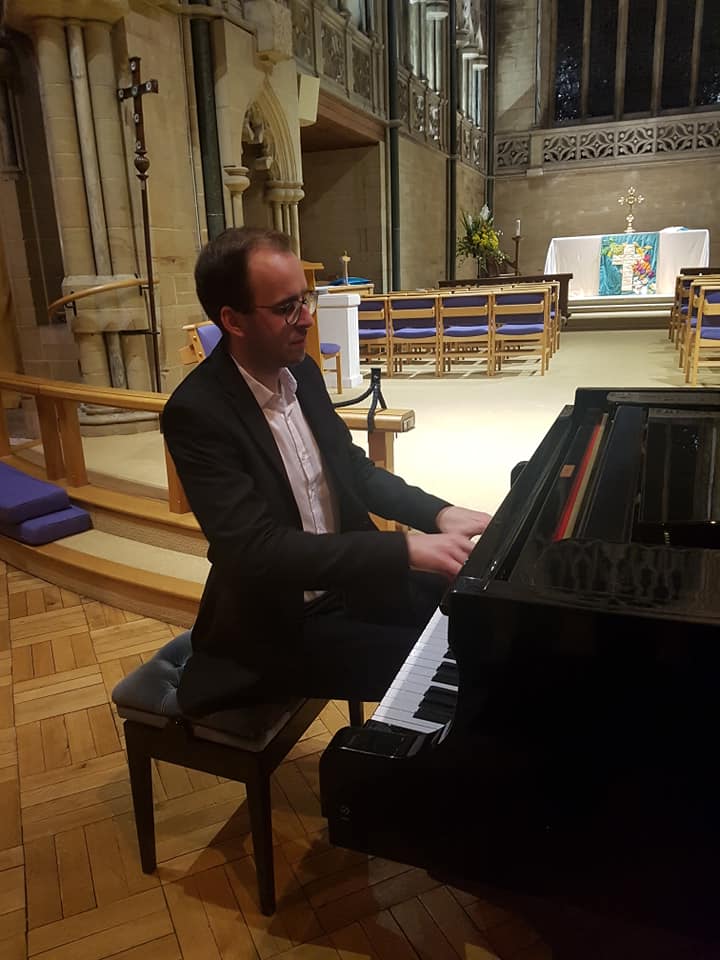
The next Rochdale Musical Society concert will by on 5 March 2022 at 7.30pm in Heywood Civic Centre.
Pianist Ugnius Pauliukonis (right) will perform a programme of music to include Preludes by Rachmaninov and Debussy’s Suite Bergamasque.
Ugnius Pauliukonis, Pianist, Chamber Musician and Educator. His creating field in classical music performances ranging from Early Baroque to late 20th and early 21st century music. His particular interests and native musical voice is in the music of those by Haydn, Chopin and Debussy
Ugnius has won numerous awards, including RNCM Gold Medal (first ever solo recipient), the Schubert and Mark Ray Prizes, the Recital Prize and a prize at the International Amy Brant Piano Competition in Birmingham. Most recently, Ugnius was awarded with the Silver Medal Award for excellence in performances by the Worshipful Musicians Company UK, as well as PDG Young Artist award from Music Making UK for 2018-2020, including various scholarships and bursaries to support his further career in Classical Music from the North West Music Trust.
As a soloist Ugnius played with the BBC Philharmonic, Lithuanian National Symphony Orchestra, Kaunas Symphony Orchestra. He has given solo and chamber music recitals in the United Kingdom, Germany, Italy and all the Baltic states performing in venues such as the Wigmore Hall (London), Bridgewater Hall (Manchester), Lithuanian National Philharmonic(Vilnius), Vilnius Town Hall, Kaunas Philharmonic Hall (Lithuania), Lake District Music Festival, Ribchester Festival, Pazaislis Music Festival, Christopher Music festival, Music Festival Perugia, Rokiskis Music Festival. In the past Ugnius has worked with famous musicians such as Lang Lang, Jean Efflam-Bavouzet, Matti Raekalio, Stephen Hough, Sir Harrison Birtwistle, Eduardo Delgado, Nelson Goerner.
The musician is a member of ‘Confero’ Piano Quartet. The quartet has toured Lithuania playing masterpieces by Faure, Schumann, Brahms, Turina, Brahms, Dvorzak. Since 2018, Ugnius is a Co-artistic director of the ‘Trakai Classics’ music festival and concert series. Most recently, the ensemble gave their Chamber Music Debut at the Elbphilharmonie Hall in Hamburg, Germany.
Ugnius is a passionate music educator and is teaching at this private piano studio in the heart of Manchester.
Rochdale Music Society is always extremely grateful for donations which will help make it possible to maintain the consistently high standards for which it is known. As a registered charity, it can recover tax on donations of any amount – with no minimum – from both individuals and corporate donors who are UK tax-payers and who sign a simple Gift Aid Declaration.
For further information please contact the Treasurer, David Woonton, on 01706 845924.
The Society gratefully acknowledges the financial support in the form of sponsorship, patronage and grants from the following:
Link4Life (Rochdale Boroughwide Cultural Trust),
Holroyds Precision Tools, Milnrow,
Music (The National Federation of Music Societies),
Concert Promoters Network, and Patrons of Rochdale
For further information, please visit the website: www.rochdalemusicsociety.org.

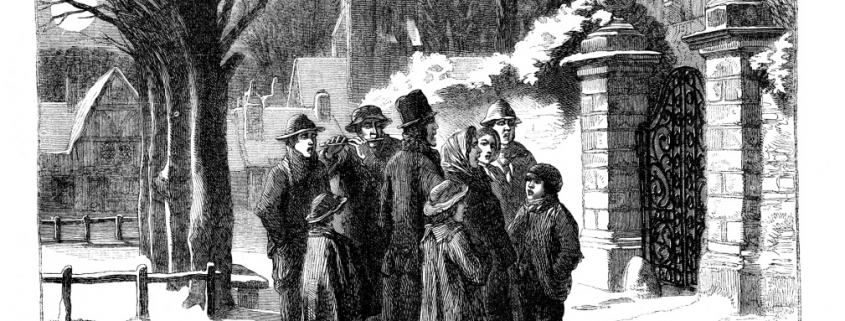


Leave a Reply
Want to join the discussion?Feel free to contribute!